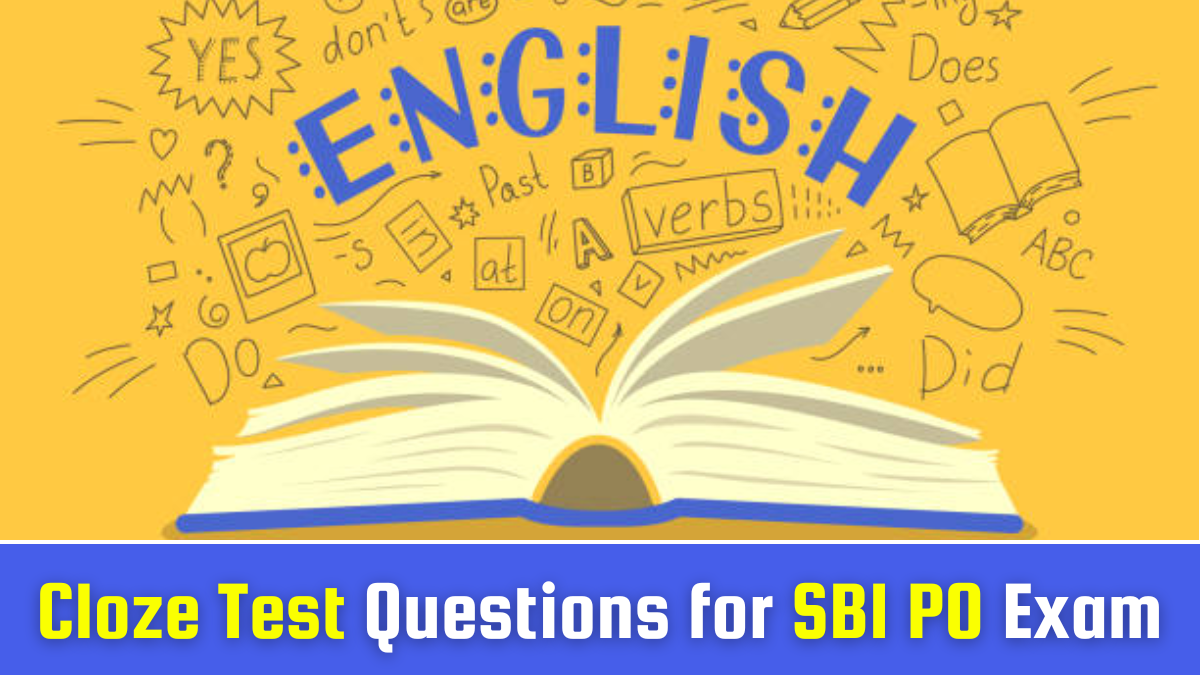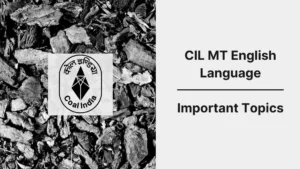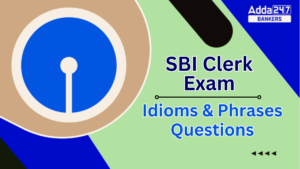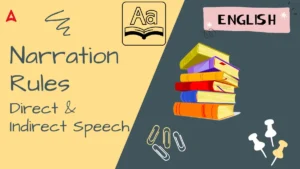SBI PO 2024 Notification will be released soon, so candidates should start focusing on the important sections of the exam for better preparation. One of the key areas to focus on is the English section, especially the Cloze Test. This part evaluates your ability to fill in the blanks with the most appropriate words based on the given context. To support your preparation, we have prepared Cloze Test Questions for SBI PO Exam which is best suited for both your Prelims and Mains stages.
Cloze Test Questions for SBI PO Exam
In the SBI PO 2024 exam, analysis of previous years shows that the Cloze Test section of the English paper generally includes around five questions. Here each Cloze Test question is paired with a comprehensive solution that will help you sharpen your comprehension skills, and understand complex passages. Below, you will find a series of questions presented in chronological order, so you can practice and boost your performance in this section.
Directions (1-5): In the following passage there are blanks, each of which has been numbered. These numbers are printed below the passage and against each, five words are suggested, one of which fits the blank appropriately. Find out the appropriate word that fits the blank.
The global economy has been experiencing significant fluctuations due to various factors such as technological advancements, geopolitical tensions, and environmental changes. These dynamics have led to a shift in how nations ______(1)_______ their resources and engage in trade. As a result, countries are increasingly looking towards sustainable development to ensure long-term economic ______(2)_______. This approach emphasizes the importance of balancing economic growth with environmental protection and social equity. In the realm of international trade, digital technology has ______(3)_______ as a critical enabler, allowing businesses to operate more efficiently and reach a wider ______(4)_______. However, the rapid pace of innovation also poses challenges, including the need for updated regulatory frameworks and measures to address digital ______(5)_______.
Q1.
(a) squander
(b) diminish
(c) replicate
(d) hinder
(e) allocate
Q2.
(a) fluctuation
(b) adversity
(c) decrement
(d) stagnation
(e) prosperity
Q3.
(a) receded
(b) emerged
(c) dissolved
(d) plummeted
(e) wavered
Q4.
(a) minority
(b) limitation
(c) audience
(d) obstacle
(e) surplus
Q5.
(a) divisions
(b) disparities
(c) conveniences
(d) security
(e) enhancements
Directions (6-10): In the following passage there are blanks, each of which has been numbered. These numbers are printed below the passage and against each, five words are suggested, one of which fits the blank appropriately. Find out the appropriate word that fits the blank.
On February 1 at 11 am, the Finance Minister will set the _____(6)________ for the temporary financial plan until the new government takes over. This will be the sixth budget presentation put _____(7)________ by the finance minister including five annual and one interim. _____(8)________ on the initiative announced in 2022, a strategy will be _____(9)________ for achieving self-reliance in oilseeds, such as mustard, groundnut, soya bean, sesame and sunflower. This will cover research in high-yielding varieties, _____(10)________ of modern farming techniques, market linkages, procurement, value addition and crop insurance
Q6.
(a) halt
(b) conceal
(c) shield
(d) cloak
(e) stage
Q7.
(a) back
(b) out
(c) up
(d) forth
(e) into
Q8.
(a) absorbing
(b) saturating
(c) building
(d) rotating
(e) dwindling
Q9.
(a) tangled
(b) created
(c) smashed
(d) applied
(e) formulated
Q10.
(a) retention
(b) abstraction
(c) probation
(d) deduction
(e) adoption
Directions (11-15): In the following passage there are blanks, each of which has been denoted by letters. For each blank, five options are given. Choose the most appropriate word from the options that fits the blank appropriately.
Much has been written about India’s ____________ (A) as an economic giant — it is the world’s fastest growing big economy, and is currently the fifth largest. Demographics is a major factor in ______________(B) this rise given that the median age is around 28 years and 63% of the population is of working age. However, the labour force participation rate stood at 55.2% in 2022, according to a recent report released by the International Labour Organization (ILO), which goes on to state that falling labour _______________(C) is likely due to growth _______________(D) by the services sector rather than manufacturing. Therefore, while we are certainly not experiencing “jobless growth”, more steps __________________(E) to harness the demographic dividend.
Q11. Which of the following words will fit in the given blank (A)?
(a) descendence
(b) evanescence
(c) fraudulence
(d) convenience
(e) emergence
Q12. Which of the following words will fit in the given blank (B)?
(a) computing
(b) bordering
(c) assigning
(d) propelling
(e) depriving
Q13. Which of the following words will fit in the given blank (C)?
(a) hostility
(b) casuality
(c) intensity
(d) mentality
(e) verbality
Q14. Which of the following phrases will fit in the given blank (D)?
(a) be lead
(b) being led
(c) been led
(d) being lead
(e) be led
Q15. Which of the following phrases will fit in the given blank (E)?
(a) are needed
(b) is need
(c) are in need
(d) is in need
(e) are need in
Directions (16-20) : In the following passage there are five blanks given. For each blank, five words are suggested, one of which fits the blank appropriately. Find out the appropriate word that fits the blank.
It is no surprise that the International Energy Agency found that India’s carbon emissions grew by 4.8% during 2018, in spite of the national _____(A)_____ on climate change in energy policy. There is wide recognition of the fact that Indians are not historically responsible for the problem, and it is the rich nations led by the U.S. that have _____(B)_____ in the stock of carbon dioxide linked to extreme climate impacts being witnessed around the globe. As the IEA points out, India’s emissions have grown, but per capita remains less than 40% of the global average. Equity among nations is therefore at the centre of the discussion on energy emissions, and the principle of common but _____(C)_____ responsibilities is central to the UN Framework Convention on Climate Change (UNFCCC). Reassuring as this may be, the universal challenge of climate change has grown to such _____(D)_____ that urgent action to sharply cut carbon emissions is crucial, and all countries, including India, must act quickly. Intensive measures in key sectors — scaling up renewables to raise their share in the energy mix, greening transport, updating building codes and _____(E)_____ energy efficiency — will help meet the national pledge under the Paris Agreement to cut energy intensity of GDP by 33-35% by 2030, over 2005 levels.
Q16. Which word appropriately fills in the first blank (A) in the passage?
(a) focused
(b) focus
(c) intentions
(d) goals
(e) None of the above
Q17. Which word appropriately fills in the second blank (B) in the passage?
(a) pumped
(b) boosting
(c) pumps
(d) rise
(e) None of the above
Q18. Which word appropriately fills in the third blank (C) in the passage?
(a) differences
(b) differentiation
(c) integration
(d) differentiated
(e) None of the above
Q19. Which word appropriately fills in the fourth blank (D) in the passage?
(a) assuring
(b) proportions
(c) proportional
(d) measuring
(e) None of the above
Q20. Which word appropriately fills in the fifth blank (E) in the passage?
(a) risen
(b) growth
(c) raising
(d) raised
(e) None of the above
SOLUTIONS:
S1. Ans. (e)
Sol. The correct word is “allocate,” which means to distribute resources or duties for a particular purpose. “Diminish” means to make or become less, “replicate” means to make an exact copy of, “hinder” means to create difficulties for someone or something, and “squander” means to waste (something, especially money or time) in a reckless and foolish manner.
S2. Ans. (e)
Sol. “Prosperity” means the state of being prosperous, which fits the context of long-term economic goals. “Adversity” refers to difficulties or misfortune, “decrement” means a reduction or decrease, “stagnation” means the state of not flowing or moving, and “fluctuation” means an irregular rising and falling in number or amount; variation.
S3. Ans. (b)
Sol. “Emerged” is the correct answer, meaning to become apparent, important, or prominent. “Receded” means go or move back or further away from a previous position, “dissolved” means to close down or dismiss, “plummeted” means fall or drop straight down at high speed, and “wavered” means shake with a quivering motion.
S4. Ans. (c)
Sol. The correct word is “audience,” referring to the assembled spectators or listeners at an event. “Limitation” means a restriction, “minority” refers to the smaller number or part, “obstacle” means a thing that blocks one’s way or prevents or hinders progress, and “surplus” means an amount of something left over when requirements have been met; an excess.
S5. Ans. (d)
Sol. “Security” is the correct choice, especially in the context of addressing challenges posed by rapid innovation, referring to measures taken to protect against espionage or sabotage, crime, attack, or escape. “Divisions” means the action of separating something into parts, “disparities” means a great difference, “conveniences” refers to the state of being able to proceed with something without difficulty, and “enhancements” means an increase or improvement in quality, value, or extent.
S6. Ans. (e)
Sol. The phrase “set the _____ for the temporary financial plan” suggests introducing or presenting something. Among the options, “stage” (e) is the best fit because it means setting up or laying the groundwork for something, which aligns with the context of preparing for a financial plan.
(a) halt: to stop; bring to a standstill
(b) conceal: to hide; keep from sight
(c) shield: to protect; defend
(d) cloak: to cover or hide something
(e) stage: to present or organize an event or performance
S7. Ans. (d)
Sol. The phrase “put _____ by the finance minister” refers to presenting or introducing something, especially in the context of budget presentations. “Forth” (d) is the correct choice here, as “put forth” means to present or propose for consideration.
(a) back: in the direction of the past or original position
(b) out: away from the inside or center
(c) up: towards a higher position; at a higher level
(d) forth: out or away from a place or point of action
(e) into: to the inside or interior of
S8. Ans. (c)
Sol. The third blank is in the context of continuing or expanding on an initiative. “Building” (c) fits best because it means to develop or expand, which aligns with the idea of continuing an initiative announced previously.
(a) absorbing: intensely engaging or interesting
(b) saturating: to fill or supply beyond capacity; to imbue thoroughly
(c) building: to construct by assembling and joining parts or materials
(d) rotating: to turn or cause to turn around an axis or center
(e) dwindling: to become gradually less until little remains
S9. Ans. (e)
Sol. The phrase “a strategy will be _____ for achieving self-reliance” implies creating or developing a plan. “Formulated” (e) is the most appropriate word here, as it means to create or devise methodically, fitting the context of developing a strategy.
(a) tangled: twisted together; entangled
(b) created: brought into existence
(c) smashed: to break violently into pieces; shatter
(d) applied: to put to use, especially for a particular purpose
(e) formulated: to devise or develop as a method, strategy, or system
S10. Ans. (e)
Sol. This blank is about actions to be taken concerning high-yielding varieties and modern farming techniques. “Adoption” (e) is the correct word because it refers to the act of beginning to use something new or applying new methods, which is consistent with the context of implementing modern farming techniques.
(a) retention: the act of keeping something in one’s possession; continued possession, use, or control
(b) abstraction: the process of considering something independently of its associations, attributes, or concrete accompaniments
(c) probation: a period of testing or trial, often used to describe a period of testing someone’s ability, character, etc., especially in their work
(d) deduction: the act of subtracting or taking away a part; also, reasoning from the general to the specific
(e) adoption: the act of taking up or starting to use or follow; the acceptance of a plan or idea
S11. Ans. (e)
Sol. The most appropriate word to fill in the blank (A) is (e) emergence.
Meanings of the words in both Hindi and English:
- Descendence (अवरोहण) – The act of descending or moving downwards.
- Incorrect: “Descendence” refers to decline or descent, which does not fit the context of India’s rise as an economic giant.
- Evanescence (क्षणिकता/अल्पकालिकता) – The process of vanishing or fading away.
- Incorrect: “Evanescence” refers to something fleeting or temporary, which contradicts the idea of India’s sustained economic growth.
- Fraudulence (धोखाधड़ी) – The quality of being deceptive or dishonest.
- Incorrect: “Fraudulence” refers to deceit, which is irrelevant in the context of describing India’s economic growth.
- Convenience (सुविधा) – The state of being able to proceed with something easily or with little effort.
- Incorrect: “Convenience” refers to ease or comfort, which does not match the context of describing India’s economic status.
- Emergence (उद्भव/उत्थान) – The process of coming into prominence or becoming important.
- Correct: “Emergence” perfectly fits the context, as it describes India’s rise as an economic giant.
Explanation:
The word emergence is appropriate because it aligns with the context of India’s rise as an economic power. Other options like “descendence,” “evanescence,” “fraudulence,” and “convenience” do not convey the idea of a nation becoming a major global player.
Additional Information:
Here are the synonyms, antonyms, and example sentences for each option:
- Descendence (अवरोहण)
- Synonym: Decline (अवनति)
- Antonym: Ascent (आरोहण)
- Sentence: The descendence of the empire was marked by economic instability and political corruption.
- Evanescence (क्षणिकता)
- Synonym: Fading (धुंधलाना)
- Antonym: Permanence (स्थायित्व)
- Sentence: The evanescence of the morning mist added a sense of mystery to the landscape.
- Fraudulence (धोखाधड़ी)
- Synonym: Deception (धोखा)
- Antonym: Honesty (ईमानदारी)
- Sentence: The company was accused of fraudulence after it was discovered they had falsified financial documents.
- Convenience (सुविधा)
- Synonym: Comfort (आराम)
- Antonym: Inconvenience (असुविधा)
- Sentence: The location of the new supermarket offers great convenience to the local residents.
- Emergence (उद्भव)
- Synonym: Rise (उदय)
- Antonym: Decline (पतन)
- Sentence: The emergence of India as a global economic power has attracted significant attention from investors worldwide.
S12. Ans. (d)
Sol. The most appropriate word to fill in the blank (B) is (d) propelling.
Meanings of the words in both Hindi and English:
- Computing (गणना करना) – The use or operation of computers.
- Incorrect: “Computing” refers to the operation of computers or calculations, which is irrelevant to the context of driving India’s economic rise.
- Bordering (सटे होना) – Lying along the boundary or edge of something.
- Incorrect: “Bordering” means being adjacent to something, which does not fit the idea of driving or contributing to economic growth.
- Assigning (नियुक्त करना) – Designating a role or task to someone.
- Incorrect: “Assigning” refers to giving a task or responsibility, which doesn’t convey the idea of driving growth.
- Propelling (प्रेरित करना) – Driving or pushing something forward.
- Correct: “Propelling” means driving or pushing something forward, which fits the context of demographics playing a major role in driving India’s rise.
- Depriving (वंचित करना) – Denying someone something essential.
- Incorrect: “Depriving” refers to taking away or denying something, which contradicts the positive context of growth.
Explanation:
The word propelling fits well as it conveys the idea of demographics driving or pushing forward India’s economic rise. Other options like “computing,” “bordering,” “assigning,” and “depriving” do not fit the context of contributing to economic growth.
Additional Information:
Here are the synonyms, antonyms, and example sentences for each option:
- Computing (गणना करना)
- Synonym: Calculating (गणना करना)
- Antonym: Estimating (अनुमान लगाना)
- Sentence: Modern technology has made computing large sets of data much faster and more accurate.
- Bordering (सटे होना)
- Synonym: Adjacent (सटा हुआ)
- Antonym: Distant (दूर)
- Sentence: The town is bordering a large forest that is home to a variety of wildlife.
- Assigning (नियुक्त करना)
- Synonym: Allocating (आवंटित करना)
- Antonym: Withholding (रोकना)
- Sentence: The manager is responsible for assigning tasks to each team member according to their skills.
- Propelling (प्रेरित करना)
- Synonym: Driving (चलाना)
- Antonym: Hindering (बाधा डालना)
- Sentence: The strong economy is propelling the company to expand its operations internationally.
- Depriving (वंचित करना)
- Synonym: Denying (अस्वीकार करना)
- Antonym: Providing (प्रदान करना)
- Sentence: The new policy is depriving some citizens of their basic rights, leading to widespread protests.
S13. Ans. (c)
Sol. The most appropriate word to fill in the blank (C) is (c) intensity.
Meanings of the words in both Hindi and English:
- Hostility (द्वेष/शत्रुता) – Unfriendly or antagonistic behavior.
- Incorrect: “Hostility” refers to animosity or aggression, which doesn’t fit the context of labour force dynamics.
- Casuality (आकस्मिकता) – The state of being casual or informal; this is a rare usage and not relevant here.
- Incorrect: “Casuality” is not a common term in this context and does not fit the idea of labour participation or growth.
- Intensity (तीव्रता) – The strength or degree of something, often used to describe the level of effort or focus.
- Correct: “Intensity” refers to the level of effort or force, which fits well with the idea of “labour intensity” decreasing due to shifts in the economy.
- Mentality (मानसिकता) – A particular way of thinking or the mental state of a person or group.
- Incorrect: “Mentality” refers to a mindset or attitude, which doesn’t align with the concept of labour participation or economic growth.
- Verbality (शाब्दिकता) – Relating to words or language.
- Incorrect: “Verbality” is not a relevant term in the context of labour force or economic growth.
Explanation:
The word intensity fits the context best as it refers to the level of labour effort or strength, which is discussed in terms of its reduction in the passage. Other options like “hostility,” “casuality,” “mentality,” and “verbality” do not fit the economic or labour-related context.
Additional Information:
Here are the synonyms, antonyms, and example sentences for each option:
- Hostility (द्वेष/शत्रुता)
- Synonym: Antagonism (विरोध)
- Antonym: Friendliness (मित्रता)
- Sentence: The negotiations were hindered by the growing hostility between the two countries.
- Casuality (आकस्मिकता)
- Synonym: Informality (अनौपचारिकता)
- Antonym: Formality (औपचारिकता)
- Sentence: The casuality of their meeting made the conversation flow easily, without the stiffness of formal introductions.
- Intensity (तीव्रता)
- Synonym: Strength (शक्ति)
- Antonym: Weakness (कमजोरी)
- Sentence: The intensity of the storm took everyone by surprise, causing widespread damage in a short time.
- Mentality (मानसिकता)
- Synonym: Mindset (सोच)
- Antonym: Ignorance (अज्ञानता)
- Sentence: His mentality of continuous improvement helped the team overcome many challenges.
- Verbality (शाब्दिकता)
- Synonym: Articulation (वाक्पटुता)
- Antonym: Silence (मौन)
- Sentence: His verbality in the debate earned him praise for effectively expressing his viewpoints.
S14. Ans. (b)
Sol. The most appropriate phrase to fill in the blank (D) is (b) being led.
Explanation:
In the context of the sentence, “growth being led by the services sector” is grammatically correct because it describes an ongoing action where growth is currently driven by the services sector. The present participle form “being led” fits the passive construction, where the subject (growth) is acted upon by the services sector.
- (a) be lead is incorrect because “lead” should be in the past participle form “led” in passive constructions.
- (b) being led is correct as it reflects the ongoing process of growth being driven by the services sector.
- (c) been led is incorrect because “been” is used in past perfect or present perfect tense, which doesn’t fit the sentence.
- (d) being lead is incorrect because “lead” should be “led” (past participle).
- (e) be led: Incorrect because “be led” would indicate a future possibility or a command, not an ongoing action as required in this context.
Additional Information:
Example sentence:
“The company’s success is being led by its innovative product development team.”
Sentence structure and grammatical rule:
- Subject: The company’s success
- Verb phrase: is being led (passive construction)
- Agent (by whom): by its innovative product development team
Grammatical Rule:
This sentence uses the passive voice in the present continuous tense. The passive voice is formed by:
- “Be” verb in the correct tense (in this case, “is” for present continuous)
- Present participle “being” to indicate that the action is ongoing
- Past participle of the main verb (in this case, “led”) to show the action is done to the subject
In the present continuous passive, the focus is on the subject (the company’s success), while the action (leading) is done by an external agent (the product development team).
Construction formula:
Subject + be (is/am/are) + being + past participle + by (agent)
Example:
- “The company’s success” (subject) + “is being led” (passive verb) + “by its team” (agent).
S15. Ans. (a)
Sol. The most appropriate phrase to fill in the blank (E) is (a) are needed.
Explanation:
The sentence structure requires the passive voice in the present tense to express that additional steps are required. “Are needed” is grammatically correct because:
- The subject “steps” is plural, so the verb must be “are” (plural form of “be”).
- “Needed” is the past participle, used in the passive construction.
Why the other options are incorrect:
- (b) is need: Incorrect because “steps” is plural, so “is” should be “are,” and “need” should be “needed” to form the passive construction.
- (c) are in need: Incorrect because “in need” changes the meaning; it implies a state of need rather than an action that needs to be taken.
- (d) is in need: Incorrect for the same reason as (c), and “is” does not agree with the plural subject “steps.”
- (e) are need in: Incorrect because it is grammatically incorrect; “need in” is not a proper phrase.
Final choice:
The correct phrase is (a) are needed.
Additional Information:
Example sentence:
“New policies are needed to address the rising environmental concerns.”
Sentence structure and grammatical rule:
- Subject: New policies
- Verb phrase: are needed (passive voice)
- Object/Context: to address the rising environmental concerns
Grammatical Rule:
This sentence uses the passive voice in the present simple tense. The passive construction focuses on the subject (“New policies”) while emphasizing that the action (being needed) is necessary without specifying the agent who needs them.
- The passive voice is formed by:
- “Be” verb in the correct tense (in this case, “are” for present simple to match the plural subject “policies”)
- Past participle of the main verb (“needed”)
In the passive voice, the agent performing the action is often omitted because it is either obvious or irrelevant. The focus is on the necessity or action itself.
Construction formula:
Subject + be (is/am/are) + past participle (needed)
Example breakdown:
- Subject: New policies (plural)
- Be verb: are
- Past participle: needed
- Additional context: to address environmental concerns.
Thus, the sentence means that new policies are required, but it doesn’t specify by whom (the agent).
S16. Ans. (b)
Sol. ‘Focus’ is the correct fit for the blank here.
S17. Ans. (a)
Sol. ‘Pumped’ is the correct fit for the blank here.
S18. Ans. (d)
Sol. ‘Differentiated’ is the correct fit for the blank here.
S19. Ans. (b)
Sol. ‘Proportions’ is the correct fit for the blank here.
S20. Ans. (c)
Sol. ‘Raising’ is the correct fit for the blank here.
| Related Posts | |
| SBI PO Cut-Off | SBI PO Notification |
| SBI PO Salary | SBI PO Preparation Strategy |
| SBI PO Exam Date | SBI PO Previous Year Question Papers |
| SBI PO Syllabus | SBI PO Exam Pattern |




 Important Topics for CIL MT English Lang...
Important Topics for CIL MT English Lang...
 Idioms and Phrases Questions for SBI Cle...
Idioms and Phrases Questions for SBI Cle...
 Narration Rules for Direct & Indirec...
Narration Rules for Direct & Indirec...





